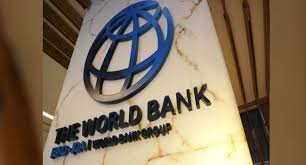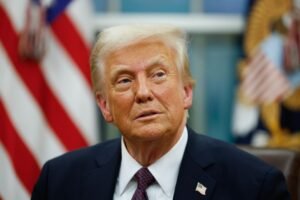In a decisive move to enhance healthcare access and financial security for Nigeria’s most vulnerable citizens, the World Bank has approved a $40 million allotment under its flagship Health Programme-for-Results (HOPE-Health-PforR). The allocation is set to significantly reinforce financial protection mechanisms for poor Nigerians, marking a pivotal stride in the country’s pursuit of equitable health outcomes.
The funding is linked directly to Disbursement Linked Indicator 3 (DLI 3)—a performance-based metric that requires states to meet defined criteria before funds are disbursed. This ensures accountability and results-driven implementation. The DLI, titled “Financial protection for poor and vulnerable populations increased (number),” aims to reduce out-of-pocket healthcare spending by expanding insurance coverage and improving access to essential services.
Formally titled Human Capital Opportunities for Prosperity and Equality, the HOPE-Health-PforR initiative is a multi-pronged programme that combines a results-based financing model with technical support for institutional reform. The broader framework includes a $70.01 million grant from the Global Financing Facility and a $500 million credit facility from the International Development Association (IDA), approved by the World Bank on September 26, 2024.
Running through June 30, 2029, the programme focuses on key health priorities such as maternal and child health, equity in service delivery, digital health infrastructure, and federal–state institutional reforms. According to documents reviewed by Sunday PUNCH, the $40 million earmarked for DLI 3 is a subset of Result Area 2, which commands a total of $272.5 million—comprising $33.5 million in grants and $239 million in IDA credits.
Read: Startup Survival in Nigeria: One-stop Services the Way Out
The World Bank noted that the DLI mechanism is “time-bound and scalable,” tying disbursements to both progress and timeline adherence. The federal government is expected to receive the funds first, with subsequent release to compliant states that fulfil programme benchmarks.
In parallel with financial protection efforts, the initiative aims to deploy public health fellows to all 774 Local Government Areas, scale up maternal health solutions, and roll out digital health platforms, especially in underserved and climate-affected regions. Capacity-building support is also embedded, targeting key national health bodies like the National Primary Health Care Development Agency and the National Health Insurance Authority.
The project’s Sector-Wide Approach further promotes collaboration among national stakeholders and international development partners within a unified implementation framework—an approach intended to streamline coordination, optimise resources, and reduce duplicative efforts.
As out-of-pocket healthcare spending remains a significant barrier for millions of Nigerians, this $40 million boost is being hailed as a critical intervention to empower low-income households and strengthen the country’s healthcare resilience.
However, amid this progress, other World Bank-backed reforms face hurdles. In a related development, Nigeria risks forfeiting $4 million from a separate loan due to non-compliance with international auditing standards tied to revenue reforms involving the Federal Inland Revenue Service and the Nigeria Customs Service. This underscores the need for institutional alignment and integrity in public financial management as Nigeria navigates its reform agenda.
Thank you for reading our blog post! Did you know you could save up to 90% in cost when you build your website, and write your business plan, proposal, feasibility study and more from us, Learn more HERE



